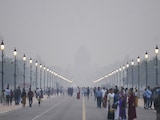- A person with thalassemia can have yellow or pale skin
- Thalassemia can be prevented
- You should check for thalassemia before planning pregnancy
World Thalassemia Day is observed on May 8. This day is meant to raise awareness about thalassemia, an inherited blood disorder which is characterised by less haemoglobin and lesser than normal blood cells. A person suffering from thalassemia has at least one of the parents as carrier of the disease. Genetic mutation and deletion of some key gene fragments can lead to thalassemia. A person suffering from thalassemia is likely to have bone deformities, especially in the face. A person with thalassemia can have yellow or pale skin, dark coloured urine, delayed growth and excessive tiredness. What's more is that these symptoms of thalassemia are not visible in every thalassemia patient. Some signs and symptoms only develop during later childhood or adolescence.
World Thalassemia Day: Are you at risk of thalassemia?
Types of thalassemia
Type of thalessemia is dependent on the number of gene mutations that you inherit from your parents. It is also dependent on which part of haemoglobin molecule is affected by mutations. The more mutated genes, the more severe will thalessemia be.
Those at high risk of thalassemia are the ones who have thalassemia in family history. Thalassemia is also more common in people of Mediterranean and Southeast Asian ancestry, and in African-Americans.
Also read: Why It Is Important To Know Your Partner's Blood Type Before Getting Married
Alpha-thalassemia
There are four genes involves in making alpha haemoglobin chain. You get two genes from each of your parents. If you inherit one mutated gene, you are not going to have any signs or symptoms of thalassemia. You can pass it on to your children in case you are carrier of the disease. If you inherit 2 mutated genes, you are going to experience mild symptoms. In case inheriting 3 mutated genes, the symptoms are going to range from moderate to severe.
The case of inheriting 4 mutated genes is rare. These fetuses have severe anemia and are usually stillborn. Babies born with this condition often die shortly after birth or require a lifelong blood transfusion.
World Thalassemia Day: You must check for thalassemia before planning pregnancy
Photo Credit: iStock
Thalassemia minor
Two genes are involved in making of beta haemoglobin chain. You get from gene from each of your parents. In case you inherit one mutated gene, you are going to have mild signs and symptoms. This condition is known as thalassemia minor. If you have 2 inherited genes, the symptoms are going to range from mild to severe. This condition is known as thalassemia major.
Babies born with thalassemia major are healthy at birth and experience signs and symptoms within first two years of life, according to MayoClinic.
Also read: World Thalassemia Day: Symptoms, Causes And Treatment For Thalassemia
Complications of thalassemia
People with thalasseia mat experience an iron overload, a condition in which they have too much iron in their bodies. This occurs either because of frequent blood transfusions or because of the disease. Excessive iron can damage your endocrine system, heart and liver. Also, thalassemia patients are at high risk of infections.
Thalassemia can be prevented. If you are a carrier, talk to your doctor before planning pregnancy. S/he will tell you the risks of your child being thalassemia minor or major. Accordingly, you can take the decision of pregnancy.
Disclaimer: This content including advice provides generic information only. It is in no way a substitute for qualified medical opinion. Always consult a specialist or your own doctor for more information. NDTV does not claim responsibility for this information.















